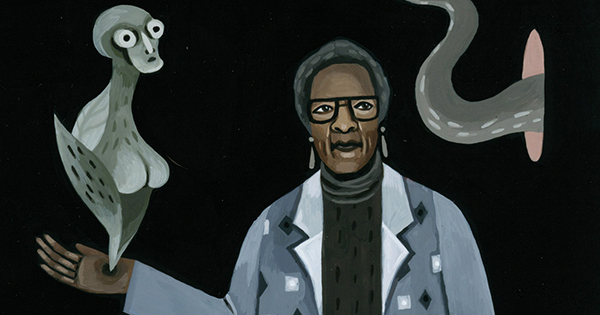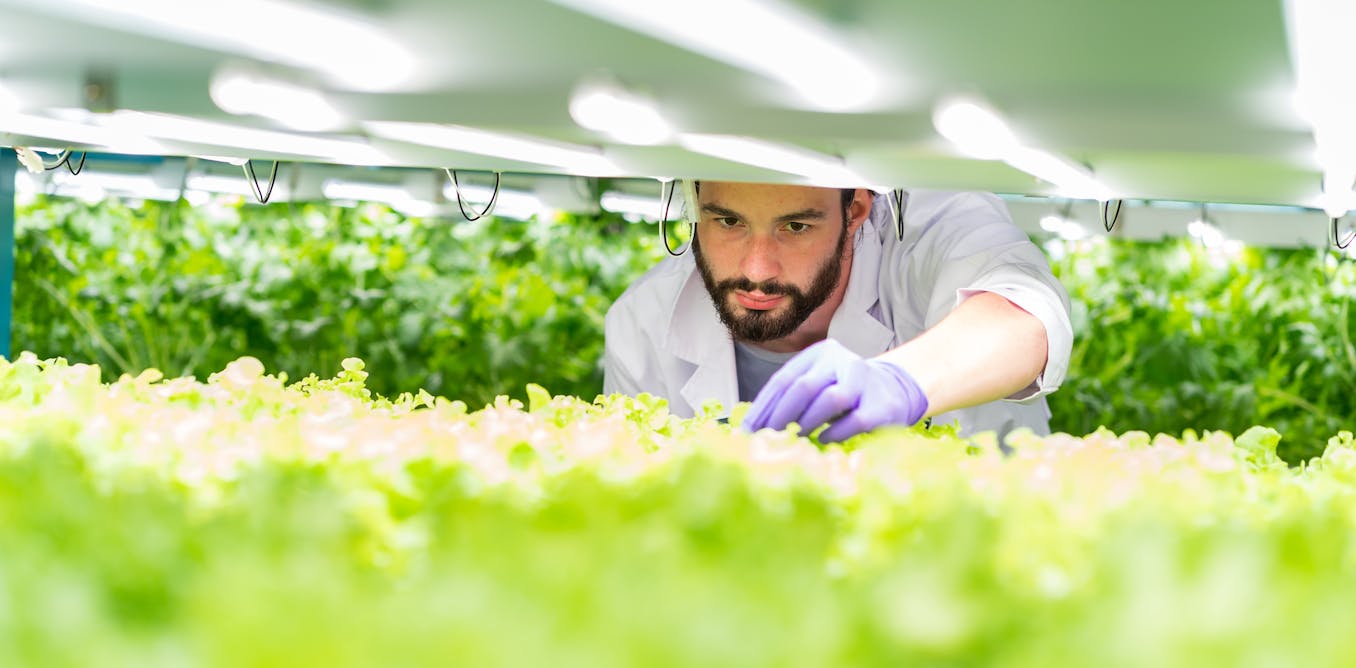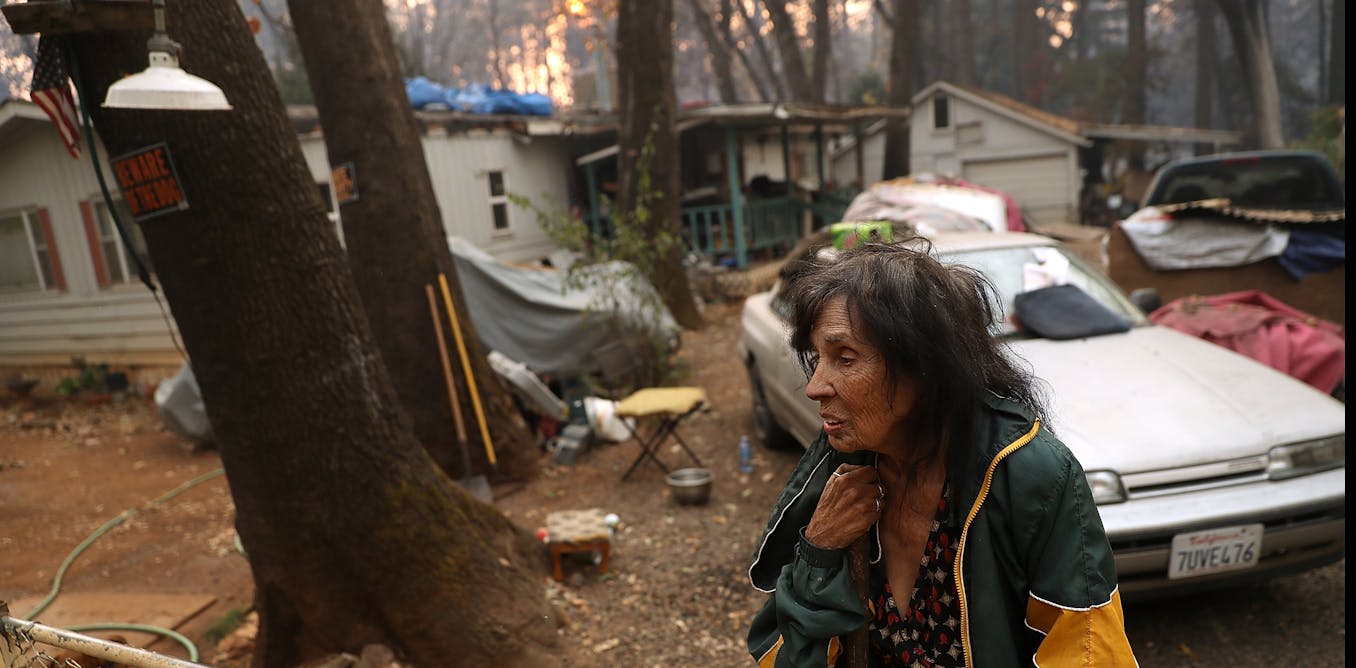   
CEO Picks - The best that international journalism has to offer!
 S1 S1
 S2 S2
 S3 S3How Generative AI Will Change Sales   Sales teams have typically not been early adopters of technology, but generative AI may be an exception to that. Sales work typically requires administrative work, routine interactions with clients, and management attention to tasks such as forecasting. AI can help do these tasks more quickly, which is why Microsoft and Salesforce have already rolled out sales-focused versions of this powerful tool.
Continued here
|
 S4 S46 Strategies for Leading Through Uncertainty   It seems that any given week provides ample reminders that leaders cannot control the degree of change, uncertainty, and complexity we face. The authors offer six strategies to improve a leader’s ability to learn, grow, and more effectively navigate the increasing complexity of our world. The first step is to embrace the discomfort as an expected and normal part of the learning process. As described by Satya Nadella, CEO of Microsoft, leaders must shift from a “know it all” to “learn it all” mindset. This shift in mindset can, itself, help ease the discomfort by taking the pressure off of you to have all the answers.
Continued here
|
 S5 S5 Managing RAI Requires a Central Team   Our special report on innovation systems will help leaders guide teams that rely on virtual collaboration, explores the potential of new developments, and provides insights on how to manage customer-led innovation.Our special report on innovation systems will help leaders guide teams that rely on virtual collaboration, explores the potential of new developments, and provides insights on how to manage customer-led innovation.MIT Sloan Management Review and Boston Consulting Group have assembled an international panel of AI experts that includes academics and practitioners to help us gain insights into how responsible artificial intelligence (RAI) is being implemented in organizations worldwide.
Continued here
|
 S6 S6Work 'love bombing': When companies come on too strong   They check in several times a day: texts, emails, phone calls. They lavish flattery and compliments, make it clear you're the one. You only met each other a few days ago, but the hours since have been a whirlwind of attention and promises.There's a term for this kind of behaviour: 'love bombing'. Generally, it's associated with dating, when a person heaps on praise and extends grand gestures, often to manipulate a potential partner to feel quickly indebted to them.
Continued here
|
 S7 S7'It brings out the worst in everyone': Why some workers are competing for their jobs   In May 2020, Frances got a call from her boss informing her she would need to re-apply for the job she currently held. The US-based publication she worked for had lost much of its advertising revenue due to Covid-19, and now restructuring was underway. Redundancies loomed.“I was a team of one, so my role would either survive, or get cut,” says Frances, now 28. “I had to make a case for my position in a presentation to the publishers, showing how much revenue it could generate and why they should keep it.”
Continued here
|
 S8 S8Can AI help Gen Z workers make up lost ground?   Gen Z has had a hard landing into the workforce. Starting jobs amid the global pandemic, many of these new workers have missed out on gaining essential hard- and soft skills usually gleaned by working alongside older colleagues.However, as the first truly digital generation, their innate fluency with technology could help them make up some of that ground – especially as AI becomes a hugely important part of the modern workplace.
Continued here
|
 S9 S9When so much at work has changed, why can't we shake presenteeism?   For many workers, Covid-19 altered our attitudes towards our jobs and how we do them. The conditions of the past three years catalysed a full re-evaluation of careers and values, and subsequently dislodged some staid traditions that have bogged down workplace progress.In the new world of work, many employees have received what they’ve wanted from their employers – new ways of getting things done including flexible hours, remote working and even shortened workweeks.
Continued here
|
 S10 S10The rebirth of Norway's cider tradition   "Now, I want you to be opened minded," said Anne Gunn Rosvold, a food tour guide with Bergen Base Camp in Bergen, a city along the southwestern Fjord region of Norway. "Because you probably don't expect to drink this in Norway, but I am going to let you try Norwegian cider."Rosvold would be right. Cider, made from fermented apple juice, is not something I'd expect the Norwegians to be drinking – it's more common in the British Isles and coastal parts of France, particularly in Normandy. But as she explained, it has been part of the culture for a while, in fact – possibly since the time of the Vikings.
Continued here
|
 S11 S11The Super Models: How Linda, Cindy, Christy, Naomi and Tatjana defined an era   Truly iconic fashion moments don't come along that often, but at the start of the 1990s there was a succession of them. The decade began with an era-defining British Vogue cover, shot by Peter Lindbergh, and featuring Cindy Crawford, Naomi Campbell, Tatjana Patitz, Linda Evangelista and Christy Turlington – the most in-demand models of the time, photographed on the streets of New York in Levi's and bodysuits.That was soon followed by George Michael's Freedom '90 video – directed by David Fincher and starring the same five women – a cultural touchstone still reverberating decades later. It was such a hit – played in heavy rotation on the then-dominant MTV – that in March 1991 Gianni Versace sent four of the models down the runway to its soundtrack. If you want to know what a supermodel is, take a look at those women strutting arm-in-arm down the catwalk; glamour, confidence, power and money bouncing off them.
Continued here
|
 S12 S12Suicide in Ghana: society expects men to be providers - new study explores this pressure   Suicide is a complex behaviour that is widely regarded as a significant public health issue across the globe. It is influenced by psychiatric, psychological, biological, social, cultural, economic and existential factors. In most countries, the rate of male suicides is between 3 and 7.5 times higher than that of females even though suicide ideation (thoughts) and attempts are more frequent for females. The World Health Organization reported in 2020 that approximately 1,993 suicides occurred in Ghana annually. A report in Ghana on suicide attempt trends over four years also revealed that 707 suicide attempts occurred in 2018, 880 in 2019, 777 in 2020 and 417 as of June 2021.
Continued here
|
 S13 S13Five golden rules for effective science communication - perspectives from a documentary maker   Over the past three years, people from all walks of life have learned a great deal about different branches of science. The COVID-19 pandemic introduced many of us to information about virology and vaccine production. Environmental disasters in every part of the world have brought concepts from meteorology and climatology to daily news reports.In general, people trust scientists more than they do most other professions. But this isn’t the case universally. Trust in science dropped in sub-Saharan Africa after the pandemic. In other parts of the world, in particular the US, public opinion about science is driven by political ideology and is becoming increasingly polarised.
Continued here
|
 S14 S14City watchdog finds no evidence for recent political 'debanking' - but private banks have been picky for centuries  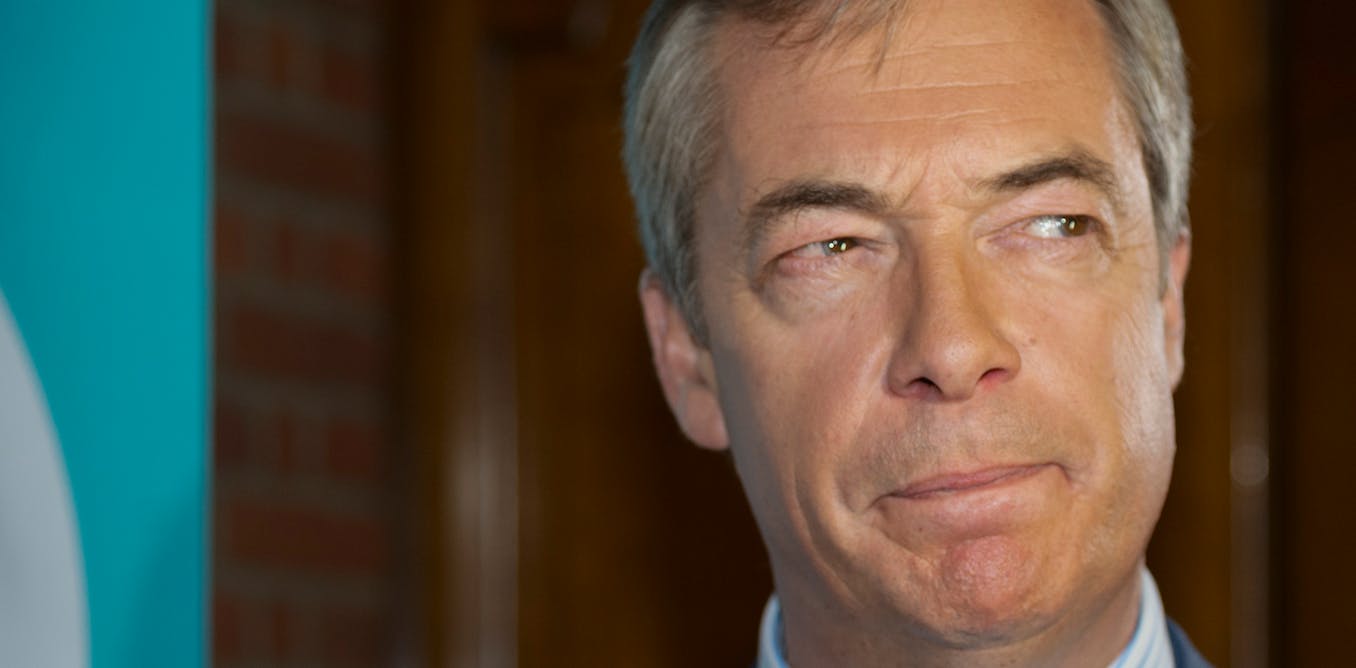 After a row over the closure of his bank account earlier this year, former politician Nigel Farage has hit out at the UK financial regulator for saying it has found no recent evidence of customers being “de-banked” over their personal views.Farage believes private bank Coutts closed his account because his political views didn’t align with the company’s values. Coutts and its parent company NatWest Group denied his accusations, saying he didn’t have enough funds to be a customer of the private bank. Farage was offered an account with NatWest’s high street arm but reportedly turned it down as unsuitable.
Continued here
|
 S15 S15Idea of green growth losing traction among climate policy researchers, survey of nearly 800 academics reveals   When she took to the floor to give her State of the Union speech on 13 September, European Commission president Ursula von der Leyen largely stood by the script. Describing her vision of an economically buoyant and sustainable Europe in the era of climate change, she called on the EU to accelerate the development of the clean-tech sector, “from wind to steel, from batteries to electric vehicles”. “When it comes to the European Green Deal, we stick to our growth strategy,” von der Leyen said.Her plans were hardly idiosyncratic. The notion of green growth – the idea that environmental goals can be aligned with continued economic growth – is still the common economic orthodoxy for major institutions like the World Bank and the Organisation for Economic Co-operation and Development (OECD).
Continued here
|
 S16 S16The EU's anti-subsidy investigation into electric vehicles is a risky strategy that may backfire   Louise Curran is involved in an EU Horizon Project - TWINSEEDS - looking at the future of EU Value Chains post Covid. More details here: www.TWINSEEDS.eu In her State of the Union address on 13 September, European Commission president Ursula von der Leyen announced a new anti-subsidy investigation into electric vehicles (EVs) from China, claiming that the market is being flooded by cheap imports at prices that are kept artificially low by “huge state subsidies”. The move was widely reported to be a reaction to pressure from France; other member states, notably Germany, were opposed.
Continued here
|
 S17 S17Depression recovery can be hard to measure - new research on deep brain stimulation shows how objective biomarkers could help make treatment more precise   It can be challenging to create a treatment plan for depression. This is especially true for patients who aren’t responding to conventional treatments and are undergoing experimental therapies such as deep brain stimulation. For most medical conditions, doctors can directly measure the part of the body that is being treated, such as blood pressure for cardiovascular disease. These measurable changes serve as an objective biomarker of recovery that provides valuable information about how to care for these patients. On the other hand, for depression and other psychiatric disorders, clinicians rely on subjective and nonspecific surveys that ask patients about their symptoms. When a patient tells their doctor they are experiencing negative emotions, is that because they are relapsing in their depression or because they had a bad day like everyone does sometimes? Are they anxious because their depression symptoms have lessened enough that they are experiencing new feelings, or do they have some other medical problem independent of their depression? Each reason may indicate a different course of action, such as altering a medication, addressing an issue in psychotherapy or increasing the intensity of brain stimulation treatment.
Continued here
|
 S18 S18Russell Brand: why it is so difficult for people to come forward with sexual assault allegations   When writer E. Jean Carroll was asked why she finally went public – after more than 25 years – to accuse then US president Donald Trump of sexual assault, her response was something that countless others have thought: “Think of how many women have come forward and nothing happens.”The thousands of comments on a YouTube clip of that interview show the typical backlash faced by people who come forward with such accusations. They are cruel and misogynistic, unsubstantiated accusations that the person is crazy, attention-seeking, a money grabber, a liar and not a “real” victim.
Continued here
|
 S19 S19 S20 S20 S21 S21Breast cancer: new study reveals real risk of the disease if you have genetic mutation   In 2013, actress Angelina Jolie wrote an op-ed where she revealed she’d undergone a double mastectomy. Although Jolie didn’t have breast cancer, a genetic test had revealed she carried a genetic mutation that her doctors said put her at an 87% risk of developing breast cancer in her lifetime. Jolie also had a family history of breast cancer, losing her mother, grandmother and aunt to the disease.Jolie has a genetic mutation to one of her BRCA genes – specifically the BRCA1 gene. We all have BRCA genes, which function as tumour suppressors. These genes are essential for healthy cell survival and cancer prevention. They act to repair our DNA and fix errors that occur due to ageing or environmental exposures (such as tobacco or radiation).
Continued here
|
 S22 S22In future, we'll see fewer generic AI chatbots like ChatGPT and more specialised ones that are tailored to our needs   AI technology is developing rapidly. ChatGPT has become the fastest-growing online service in history. Google and Microsoft are integrating generative AI into their products. And world leaders are excitedly embracing AI as a tool for economic growth. As we move beyond ChatGPT and Bard, we’re likely to see AI chatbots become less generic and more specialised. AIs are limited by the data it’s exposed to in order to make them better at what they do – in this case mimicking human speech and providing users with useful answers.
Continued here
|
 S23 S23 S24 S24Big businesses say they are helping to restore ecosystems - but proof remains elusive   We’re witnessing first-hand an alarming decline of the world’s ecosystems, which is having a devastating impact on the people who rely on them. In many cases, it’s no longer enough to just protect what remains – degraded ecosystems must be restored.Expanding restoration efforts at the rate required will only be possible with committed buy-in from local communities, regional and national governments, civil society and – crucially – the corporate sector.
Continued here
|
 S25 S25 S26 S26Not everyone wants to delegate their chores to technology   Household chores have a bad reputation. Many of us do not particularly like doing the dishes and cleaning the floor. No wonder companies are leveraging advances in robotics and artificial intelligence to introduce a new class of autonomous products, which promise to free us entirely from everyday chores. These gadgets operate without human oversight and free consumers from mundane chores. Sounds great, right?
Continued here
|
 S27 S27Rising costs and delays don't necessarily mean HS2 is failing - an expert in new infrastructure development explains   The UK government is reportedly considering scrapping the second phase of its long-term high-speed rail project, HS2. It has been revealed that a cost analysis outlining the benefit of doing so was prepared ahead of Prime Minister Rishi Sunak’s recent meeting with Chancellor Jeremy Hunt. Reports have said that Sunak and Hunt were told cancelling the line from Birmingham to Manchester could save up to £35 billion.Launched in 2013, HS2 has been controversial from the outset. Support, both political and popular, has wavered. Costs and delays have spiralled, yet quantifying the corresponding increase in benefits has remained difficult.
Continued here
|
 S28 S28Sunak should be wary of backtracking on net zero - what history tells us about flip-flopping on the environment  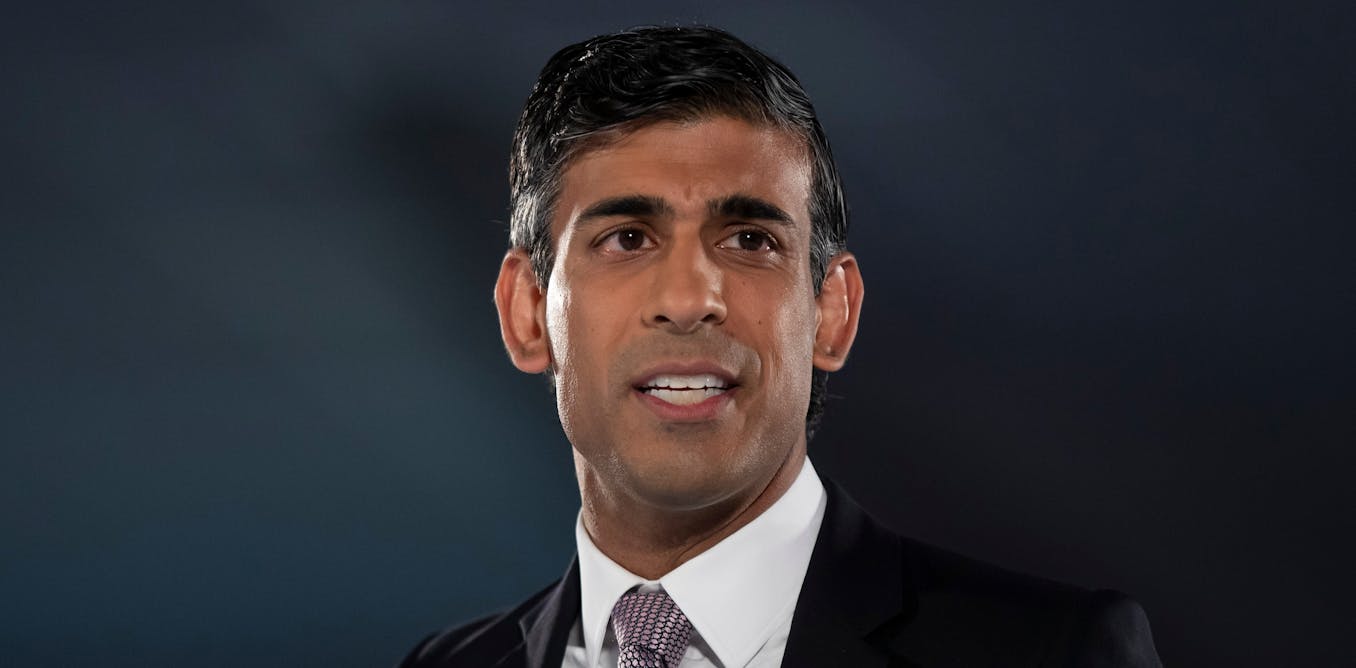 Rishi Sunak has delivered a speech in which he announced delays to key net zero targets, including postponing the ban on the sale of new petrol and diesel cars until 2035. It is a remarkable event given that the UK Conservative party has at least paid lipservice to environmental concerns for the last 50 years, at times even outflanking Labour.Several Conservative MPs have expressed their frustration and disappointment with the announcement. Chris Skidmore, a Conservative MP and former minister who produced a report on net zero for Sunak this year, has gone on record stating: “We will look back on this moment as Sunak’s slow-motion car crash.”
Continued here
|
 S29 S29 S30 S30The fraught history of India and the Khalistan movement   The Indian government has warned its citizens living in Canada to exercise “extreme caution” due to a “deteriorating security environment” in the country. The warning came after Canadian Prime Minister Justin Trudeau announced that Canadian police were investigating “credible allegations” of the Indian government’s involvement in the killing of Hardeep Singh Nijjar.
Continued here
|
 S31 S31How the 'parental rights' movement gave rise to the 1 Million March 4 Children   Thousands of protesters and counter-protesters in cities across Canada have clashed over the rights of trans children and youth. The “1 Million March 4 Children” on Sept. 20 is part of a widespread and growing “parental rights” movement targeting inclusive public education. This movement has already influenced provincial politics in Canada, including via Policy 713 in New Brunswick, where youth under 16 years of age are now required to obtain parental consent before they can change their name and pronouns at school.
Continued here
|
 S32 S32Smashing records (and chairs): why pro wrestling is having a moment both in Australia and overseas   Professional wrestling may seem to exist on the fringes of mainstream pop culture, but it has a bigger cultural bootprint locally and internationally than many people might realise. A long-established performance art, wrestling moved onto screens in the early days of television and is still big business for TV, live events and streaming.A company like WWE (World Wrestling Entertainment) has the economic clout to have cities bidding for the right to hold major events. Its ongoing partnership with Saudi Arabia has also led to serious concerns about the company aiding Saudi Arabia in “sportswashing” human rights abuses.
Continued here
|
 S33 S33 S34 S34The joke's on us - how big tech is replicating our laughter online   Human laughter as we know it likely developed between ten and 16 million years ago. For context, the stone tools our distant human ancestors made in the Early Stone Age date back around 2.6 million years. These are vast time spans, but it was perhaps good that our Palaeolithic ancestors had a sense of humour ready to deal with tech fails such as a blunt hammerstone. Why does this matter? Well, let’s fast forward to today and our contemporary issues with technology, such as how to deal with the things we’ve made when they fail us. Anger is a common response (see the video below) – but tech companies would much rather harness the soothing power of laughter.
Continued here
|
 S35 S35I've just been diagnosed with cancer, now what?   In one pivotal instant your life has changed and there will be no turning back. How will you accept, adjust and adapt to being “someone who has cancer”? Well, first, you are still the same person. But now you have a definitive diagnosis calling for your immediate attention.
Continued here
|
 S36 S36 S37 S37Ancient pictograph vandalism at Bon Echo Provincial Park reveals an ongoing disregard for Indigenous history and presence  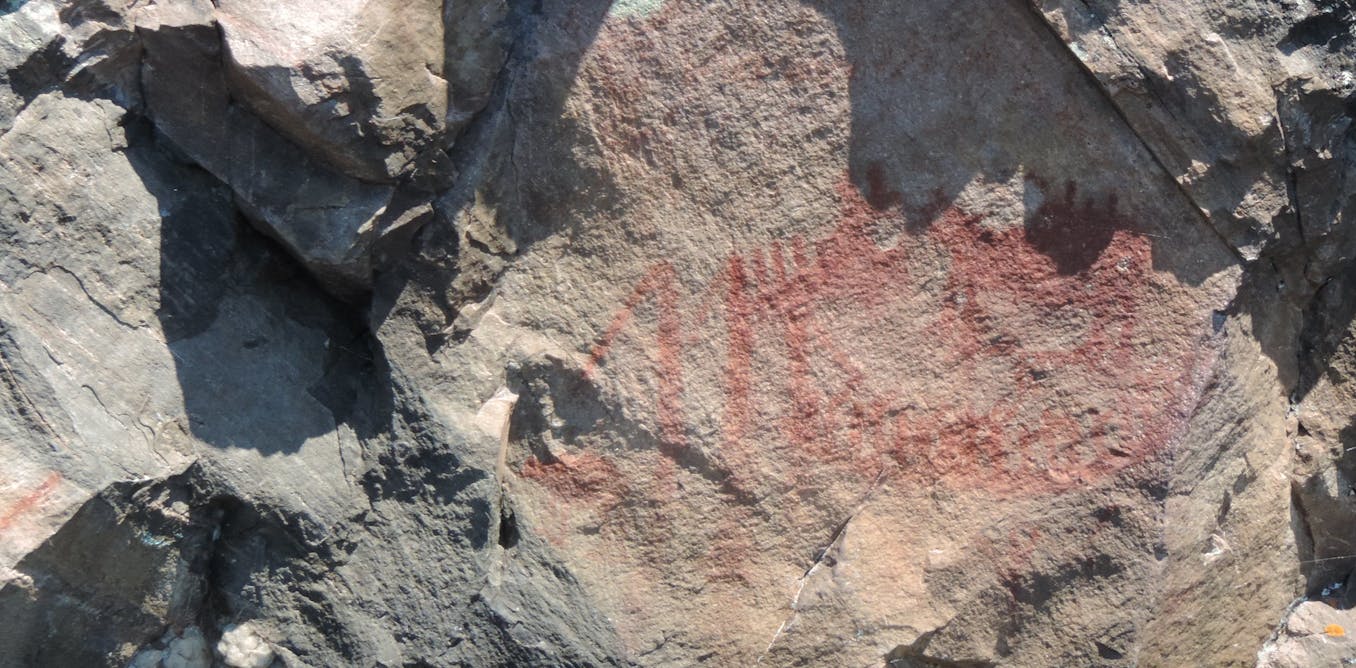 Vandalism has once again marred the ancient Indigenous pictographs nestled within Bon Echo Provincial Park about two hours west of Ottawa and north of Kingston, Ont.For the Anishinaabe, these pictographs — rock paintings — hold profound cultural significance and meaning. They constitute the largest collection of pictographs in southeastern Ontario, on the shores of Mazinaw Lake, or Mazinaabikinigan-zaaga’igan, in Algonquin meaning “painted-image lake.” The Algonquin people, a subgroup of the Anishinaabe, share historical and cultural connections, each with distinct languages, traditions and territories within the broader Algonquian language family.
Continued here
|
 S38 S38Sex life discovery raises IVF hope for endangered purple cauliflower soft coral  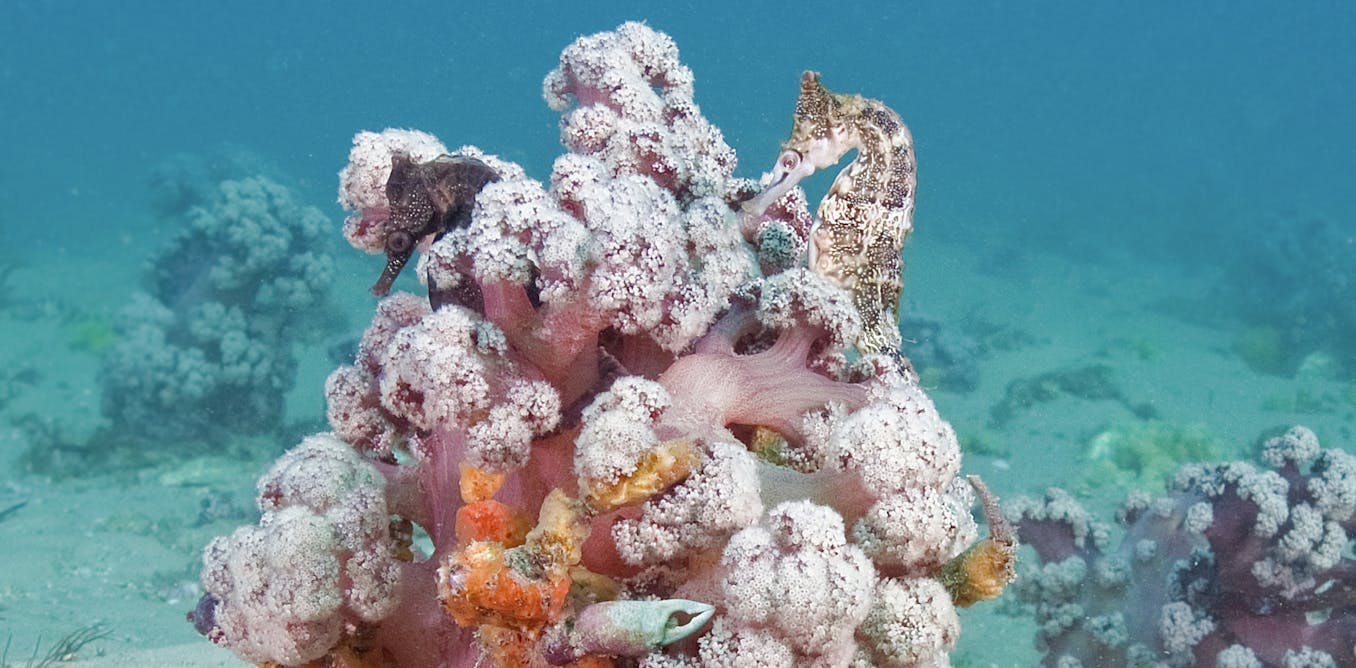 Vital coastal habitat was destroyed in the devastating floods that hit New South Wales in 2021 and 2022. The purple cauliflower soft coral Dendronephthya australis, now listed as an endangered species, was almost completely wiped out in the Port Stephens estuary and along the coast. That’s a tragedy because this coral shelters young snapper and the endangered White’s seahorse.
Continued here
|
 S39 S39Obesity is a dangerous disease that shares key features with cancer   Although obesity has been recognized as a disease by the World Health Organization (WHO) since 1948, its identity as a disease may not be widely perceived the same way as other health conditions. People living with obesity are less likely to receive dedicated care for that condition, in contrast to patients with other diseases, such as cancer. However, obesity and cancer have several similarities. This is of global crucial importance, given the dramatic increase in numbers of affected adults and children, including in Canada.
Continued here
|
 S40 S40A month after Ecuador's historic vote to end oil extraction in Yasun   Ph.D. Candidate, Department of Geography and Planning, Queen's University, Ontario One month ago, on Aug. 20, Ecuador voted to end all oil extraction in Yasuní National Park, marking a historic decision in the global effort to halt fossil fuel extraction in ecologically important regions. As climate emergencies rise globally, Ecuador has set a global precedent by protecting one of the most ecologically diverse areas on the planet, a UNESCO designated biosphere reserve.
Continued here
|
 S41 S41Age, not class, is now the biggest divide in British politics, new research confirms   “Class is the basis of British politics; all else is embellishment and detail.” So wrote Peter Pulzer, the former Gladstone professor of politics at the University of Oxford in the 1960s. Nowadays, however, it is age, not social class, that is the biggest demographic division in Britain’s electoral politics.According to the British Election Study, at the 2019 general election, the Conservatives won the support of 56% of those aged 55 and over, but only 24% of those under 35. Conversely, Labour was backed by 54% of those under-35s who cast a vote, but by just 22% of those aged 55 and over.
Continued here
|
 S42 S42Women used to be more likely to vote Conservative than men but that all changed in 2017 - we wanted to find out why   In many nations in the immediate post-war period, women were more often supporters of rightwing parties than men. This “traditional” gender gap was supposedly underpinned by women’s greater religiosity and lower exposure to the social institutions of the left, such as trade unions.However, in many wealthy nations, a “modern” gender gap has emerged. Women in these nations are more likely to support leftwing parties than men. For example in the US, a greater proportion of women than men have voted for the Democratic presidential candidate in every election since 1980.
Continued here
|
 S43 S43How Canada can make its startup ecosystem more inclusive   The global pandemic caused devastating economic impacts, including high levels of unemployment. As with the 2008 recession, self-employment has been encouraged as a pathway towards economic participation and boosting the labour market.Yet marginalized groups, including women and Indigenous people, continue to face barriers to starting and growing a business. In 2022, only 18 per cent of small and midsize businesses in Canada were majority women-owned, only 16 per cent were owned by visible minorities and only two per cent were Indigenous-owned.
Continued here
|
 S44 S44 S45 S45Are Australia's roads becoming more dangerous? Here's what the data says   In 2022, there were nearly 1,200 road crash deaths in Australia – a figure that has remained largely the same over the past decade. However, some states and territories have seen dramatic increases in just the last five years, such as the ACT (100%), Tasmania (59.4%) and Queensland (21.2%). Serious injuries from road crashes have also been on the rise, from 35,000 in 2013 to 39,866 in 2019.
Continued here
|
 S46 S46The Federal Reserve held off hiking interest rates - it may still be too early to start popping the corks   Federal Reserve officials held interest rates steady at their monthly policy meeting on Sept. 20, 2023 — only the second time they have done so since embarking on a rate-raising campaign a year and a half ago. But it is what they hinted at rather than what they did that caught many economists’ attention: Fed officials indicated that they don’t expect rates to end 2023 higher than they did in June – when they last issued their projections. Since the hiking cycle began, observers have worried about whether increased rates could push the U.S. economy into a downturn. Some have even speculated that a recession had already begun. However, the economy has been more resilient than many expected, and now many economists are wondering whether the seemingly impossible soft landing – that is, a slowdown that avoids crashing the economy – has become a reality.
Continued here
|
 S47 S47 S48 S48 S49 S49 S50 S50 S51 S51 S52 S52Australia has officially given up on eradicating the Varroa mite. Now what?  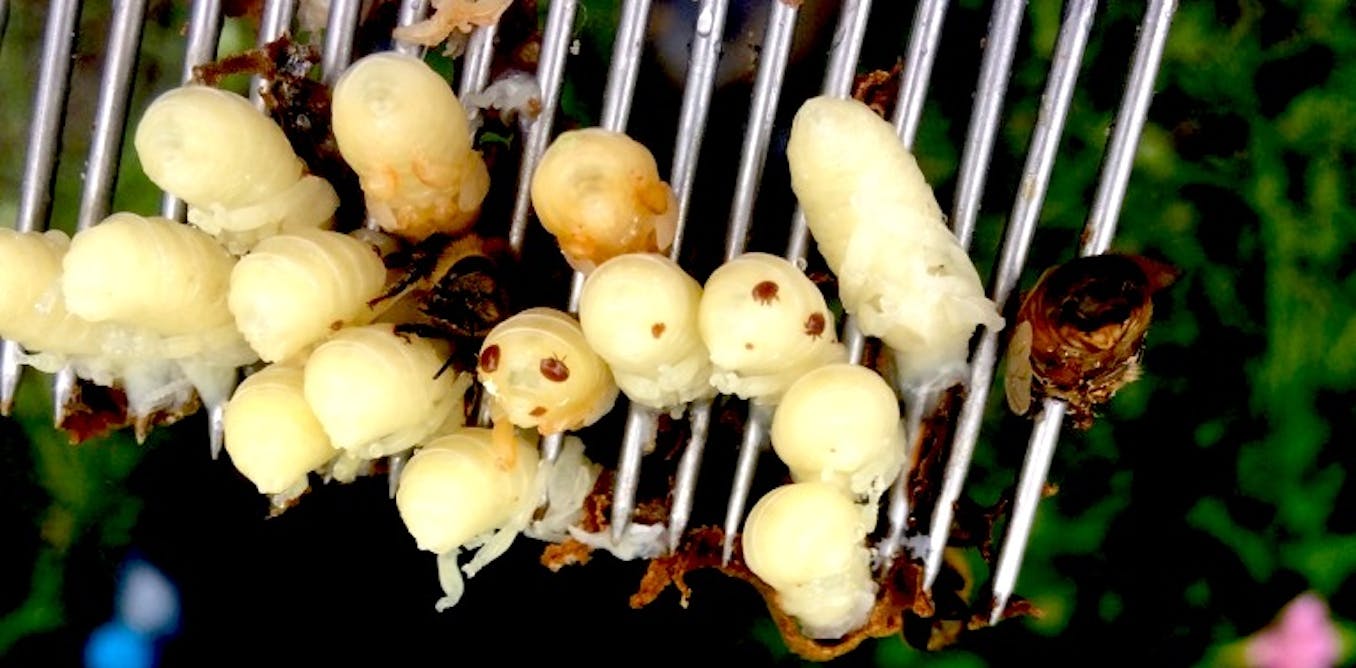 The federal government body in charge of pest control has announced Australia will abandon efforts on eradicating the Varroa mite.This parasitic mite (Varroa destructor) lives in honey bee colonies, feeding on pupae and adult bees. The mites spread viruses, impair the bees’ ability to fly and communicate, and makes them more susceptible to pesticides, eventually causing a colony collapse if left unmanaged.
Continued here
|
 S53 S53Politics with Michelle Grattan: ANU Vice-Chancellor Brian Schmidt on the challenges universities face   Australia’s higher education sector is under heavy scrutiny. Still recovering from the impact of COVID and criticised for its treatment of staff, it faces strong pressures to step up its performance.The Universities Accord interim report suggests 55% of jobs by 2050 will require a higher education qualification. At the moment, the share sits at 36%. To reach that target, Schmidt says institutions, secondary educators and governments will need to work together:
Continued here
|
 S54 S54 S55 S55 S56 S56How did Taylor Swift get so popular? She never goes out of style   Last week, USA Today/Gannett posted a job ad for a Taylor Swift reporter, seeking an experienced journalist and content creator to “capture the music and cultural impact of Taylor Swift”. It’s not the first time Swift has been the focus of professional and academic work. In 2022, New York University’s Clive Davis Institute announced a course focused on Swift, taught by Rolling Stone’s Brittany Spanos. They also gave Swift an honorary doctorate in fine arts, as “one of the most prolific and celebrated artists of her generation”.
Continued here
|
 S57 S57 S58 S58Professionals in Sweden are pushing back hard against a rightwing plan to make them snitch on undocumented migrants   Workers in the welfare sector are currently giving Sweden’s government a significant headache in a dispute about upholding professional ethics. They are opposing a planned law that would require them to “snitch” on undocumented migrants. And since the successful implementation of the law would require their cooperation, the policy has reached something of an impasse.The political crisis centres on a proposal to force doctors, social workers, dentists, teachers and other welfare professionals to report undocumented patients, clients and students to the police. This is a demand many professionals, their unions and even employer associations argue is fundamentally antithetical to professional ethics and obligations to care for and serve all.
Continued here
|
 S59 S59German police have long collaborated with energy giant RWE to enforce ecological catastrophe  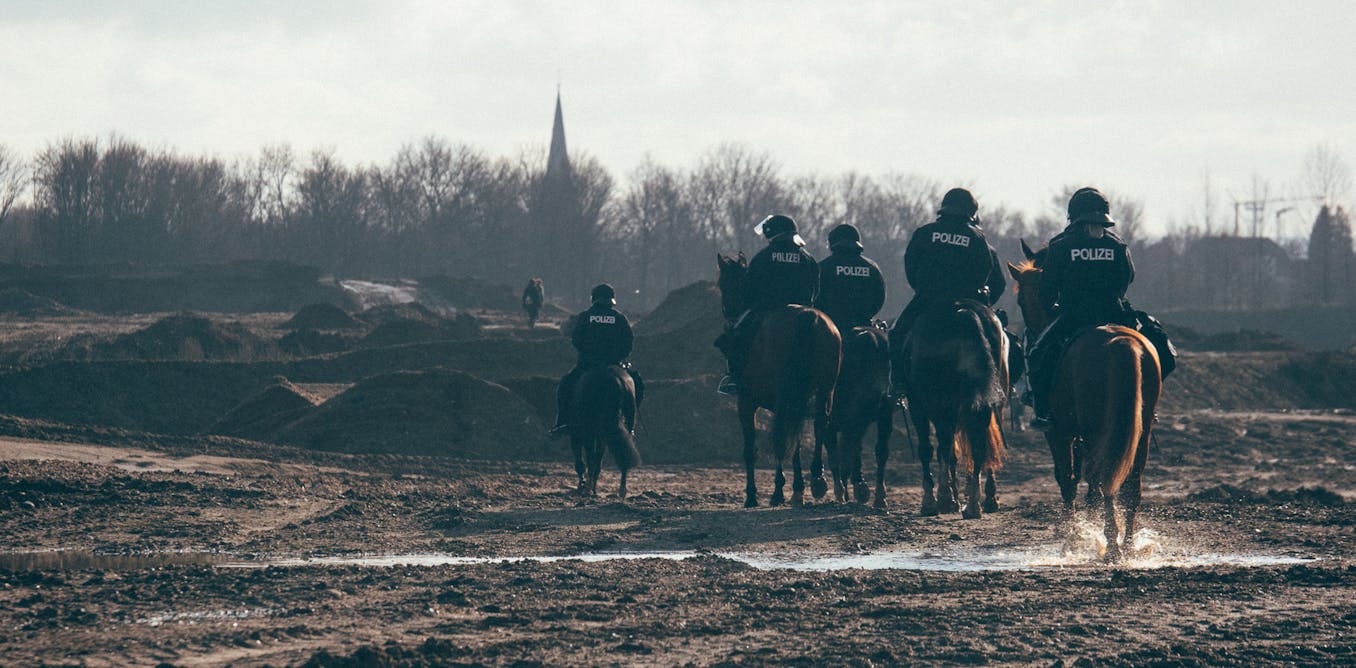 In early 2023, the German village of Lützerath was the site of violent clashes between thousands of protesters and police who wanted to clear the village so it could be swallowed up by Garzweiler II, a huge opencast coal mine. In small groups, police forces charged into groups of protesters, beating people, kicking and pushing them to the ground. Police dogs attacked protesters, just metres away from the steep edge of the Garweiler II opencast coal mine. Dozens of people were injured.The protests made world headlines when Greta Thunberg joined in and was detained by police.
Continued here
|
 S60 S60Ukraine War: why the Black Sea is key to Kyiv's counteroffensive   Ukraine has launched its largest drone attack to date on Russian assets in the Black Sea and Crimea. This is consistent with an escalation in attacks on Crimea and the surrounding region in recent weeks, highlighting the strategic importance of that region for Kyiv.At the start of the war, the Russian navy quickly secured control of the northwestern Black Sea. But its control was to be shortlived. In April 2022, Ukraine struck a blow against the Russian Black Sea Fleet when it sank the flagship cruiser Moskva. This was followed, in July the same year, by the retaking of Snake Island, which Russia had occupied in the early days of the war.
Continued here
|
S61 |



























































































































